What Bones Are Safe For Dogs? Let’s Find Out


Dogs and Bones – sounds like a forever love story, or is it? Are bones actually safe for dogs to chew on, or do they pose a threat to our furbabies? Like many things in life, the answer to this question isn’t a simple yes or no. But worry not. In this article, we will explore what bones are safe for dogs and how to choose the right bone for your dog. So keep reading!
What Bones Are Safe For Dogs
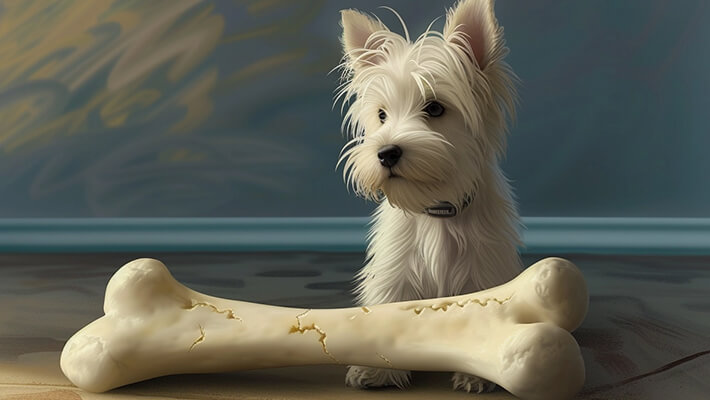
While bones can seem like a natural and healthy treatment option for dogs, the truth is not all bones may not be safe for dogs. In fact, some bones can be quite dangerous and pose a choking hazard or lead to broken teeth or digestive upset. So before you decide to give your dog a bone to chew on, check out what bones are safe for them:
Raw vs. Cooked Bones
Raw bones from animals such as beef, chicken, turkey, and lamb are considered safe for dogs. Some examples include chicken and duck necks, feets, wings, beef or lamb ribs and tails from pigs, goats, lambs etc.
These bones contain nutrients and minerals that are beneficial for your dog’s overall health. On the other hand, cooked bones contain very few nutrients that are not beneficial for your dog in any way. Moreover, the cooking process also changes the bones’ texture and makes them very brittle.
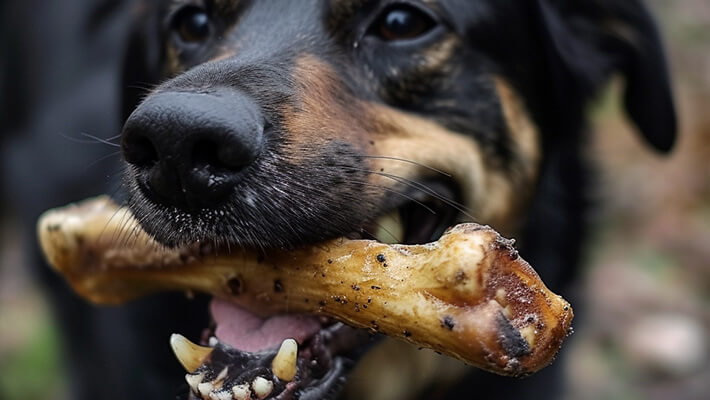
In comparison, raw bones have a softer texture than cooked bones, making them less likely to splinter. This is why raw bones are safe for your dogs to chew on without the risk of breaking off into sharp pieces, which in turn can cause internal injuries.
So, no matter how much your dog gives you the puppy eyes during dinner, dont give them any cooked bones from your plate. In addition, make sure to supervise your dog as much as possible while they are chewing on raw bones to prevent any accidents.
Edible vs. Recreational Bones
Edible bones are raw, uncooked bones that have the meat, tissue, and cartilage still attached to them. These bones generally come from smaller animals like rabbits, ducks, quail, chickens, turkeys, etc.
These bones are a rich source of all kinds of nutrients, such as calcium, phosphorus, and other essential minerals. These minerals help your dog to have healthy bones and teeth. Edible bones can be a part of dogs meals as they are meant to be completely eaten. However, you should add these bones to your dog’s diet in small amounts.
On the other hand, very large-sized bones containing very little to no meat or cartilage are called recreations bones. These bones are very low on nutrients and are only meant to be gnawed on. If you need to keep your dog satisfied and occupied for a long period, then these bones are perfect.
How To Choose The Right Bones That Are Safe For Dogs
So if you have been giving cooked bones to your pup till now, stop immediately. Now you are probably wondering what bones are safe for dogs to chew on and how to choose them? Well dont worry. In this section, we will tell you how to choose the right bones that are safe for them.
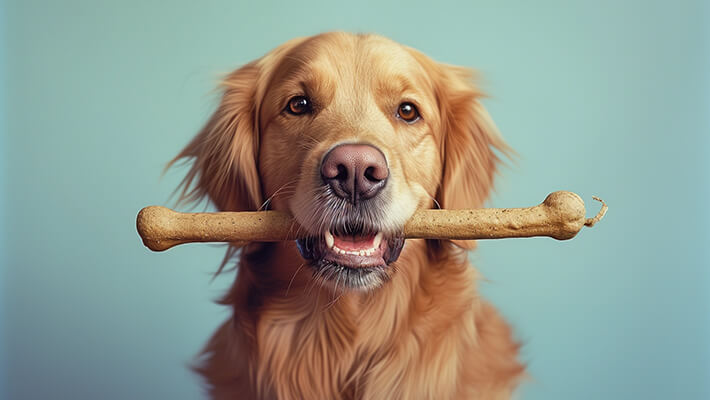
1. Size And Age
When choosing bones for your dog, it is important to consider their size and age. Small dogs should be given smaller bones, while larger dogs can handle bigger bones. Puppies should be given softer and smaller bones, as their teeth and jaw are still developing. Senior dogs may have weaker teeth and may need softer bones as well.
2. Type Of Bone
As mentioned earlier, raw bones, rawhide bones, antlers, and dental chews are safe options for dogs to chew on. However, it is important to choose the right type of bone for your dog. For example, a heavy chewer may need a more durable bone, while a dog with dental issues may benefit from dental chews. It is also important to consider your dog’s preferences. Some dogs may prefer softer bones, while others may enjoy the challenge of harder bones.
3. Quality
Choosing high-quality bones is crucial for your dog’s safety. Low-quality bones can be contaminated with bacteria, chemicals, and preservatives that can be harmful to your dog’s health. It is important to purchase bones from reputable brands and to check the ingredients list to ensure they are made from natural and safe materials.
Alternatives To Bones For Dogs
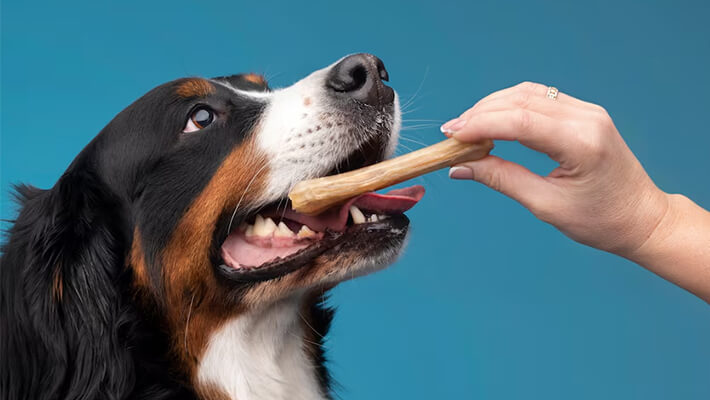
If you think bones are too risky for your dog or you cannot find the perfect one, then dont worry. There are some several good alternatives to bones for dogs. We have mentioned some of these alternatives below:
Rawhide Bones
Rawhide bones are made from the inner layer of animal hide, usually cattle. They are a popular choice for dog owners as they are inexpensive and can keep dogs entertained for a long time. Rawhide bones are safe for dogs to chew on as long as they are made from a single piece of hide and not glued together. Glued rawhide bones can cause gastrointestinal blockages and should be avoided.
Antlers
Antlers are a natural source of calcium and phosphorus, making them a safe and healthy option for dogs to chew on. They also have a hard and durable texture, making them long-lasting for heavy chewers. However, it is important to choose antlers that are appropriately sized for your dog. Small dogs can choke on large antlers and large dogs can break their teeth on small antlers.
Dental Chews
Dental chews are specifically designed to promote dental health in dogs. They come in various shapes, sizes, and textures, and are usually made from natural ingredients such as vegetables, meat, and grains. These chews are safe for dogs to chew on and can help remove plaque and tartar from their teeth. However, it is important to choose dental chews that are appropriate for your dog’s size and to monitor their chewing to prevent any choking hazards.
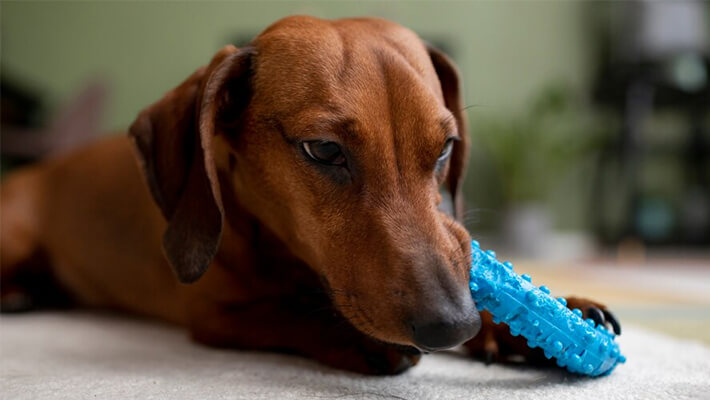
Durable Chew Toys: These come in a variety of shapes, sizes, and materials designed for long-lasting chewing fun. Look for toys made from tough nylon, rubber, or even antlers that can withstand enthusiastic gnawing. Many even have ridges or pockets to hold treats, adding an extra layer of engagement.
Frozen Treats: Fill a Kong toy or similar hollow toy with broth, yogurt, or mashed fruits and vegetables, then freeze it solid. This provides a refreshing and long-lasting challenge for your dog to lick and chew on, especially helpful on hot days.
Natural Chews: These include options like dehydrated sweet potatoes, bully sticks, or yak chews. They offer a satisfying texture for chewing and are generally safe for most dogs.
Safety Precautions To Follow When Giving Bones To Dogs
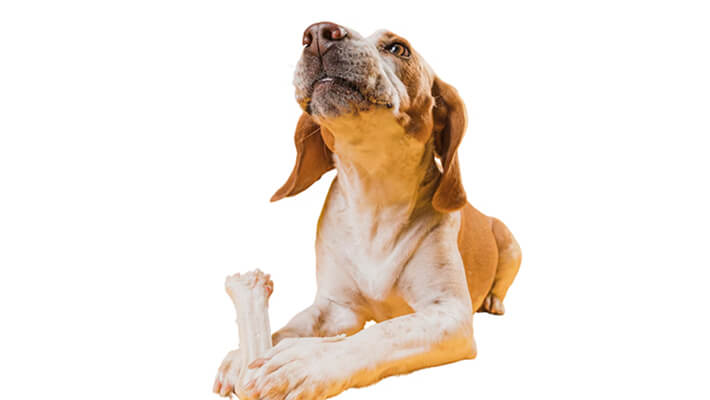
Even if you are giving bones that are safe for dogs to chew on, you need to follow some precautions. We have listed these safety measures below:
1. Avoid Cooked Bones
Cooked bones, whether from poultry, pork, or beef, are not safe for dogs to chew on. When cooked, bones become brittle and are more likely to splinter, causing harm to your dog’s mouth, throat, and digestive tract. It is important to never give your dog cooked bones, even if they seem safe and harmless.
2. Limit Chewing Time
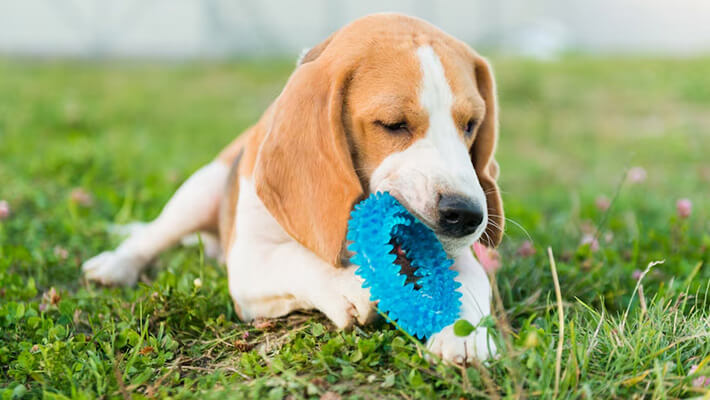
While bones can provide numerous benefits for dogs, it is important to limit their chewing time. Excessive chewing can cause wear and tear on your dog’s teeth and lead to dental issues. It is recommended to give your dog a bone for no longer than 15-20 minutes per day.
3. Store Bones Properly
Bones should be stored properly to prevent bacterial growth and contamination. It is important to store them in a cool, dry place and to discard any bones that have been left out for too long. It is also important to wash your hands after handling bones to prevent the spread of bacteria.
4. Monitor Your Dog’s Health
If your dog is showing any signs of discomfort or illness after chewing on a bone, it is important to seek veterinary care immediately. Some signs to look out for include vomiting, diarrhea, lethargy, and difficulty breathing. These could be signs of a bone getting lodged in your dog’s digestive tract.
Final Thoughts
Thus, bones can be a safe and beneficial option for dogs to chew on, as long as the appropriate precautions are taken. It is important to choose the right type and size of bone for your dog, to supervise their chewing, and to follow safety precautions to ensure their well-being. By understanding what bones are safe for dogs and how to choose the right ones, you can provide your furry companion with a healthy and enjoyable chewing experience.
RECOMMENDED READING:





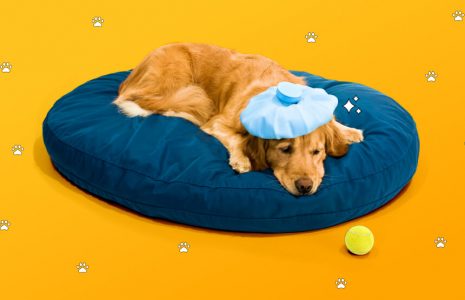
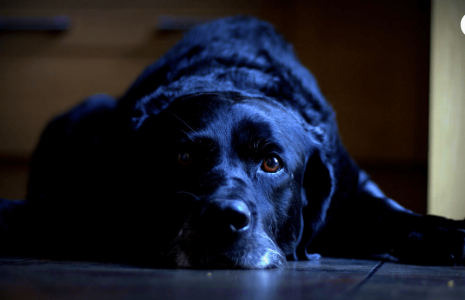
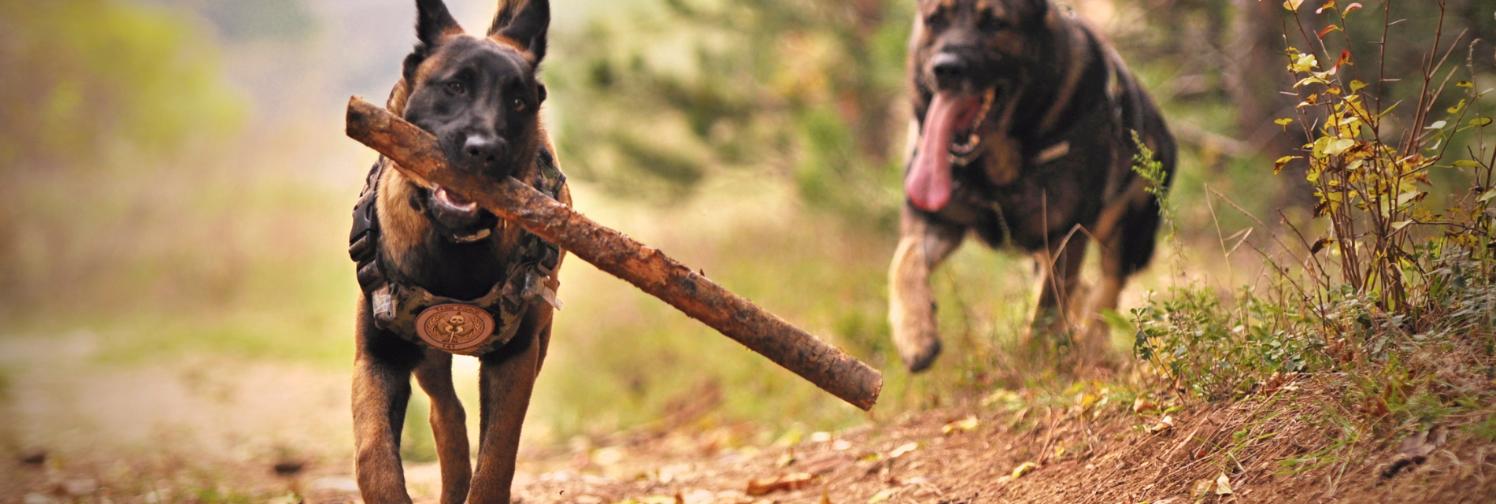
All Comments
22 May, 2024
Very interesting points you have noted, regards for posting.
Reply